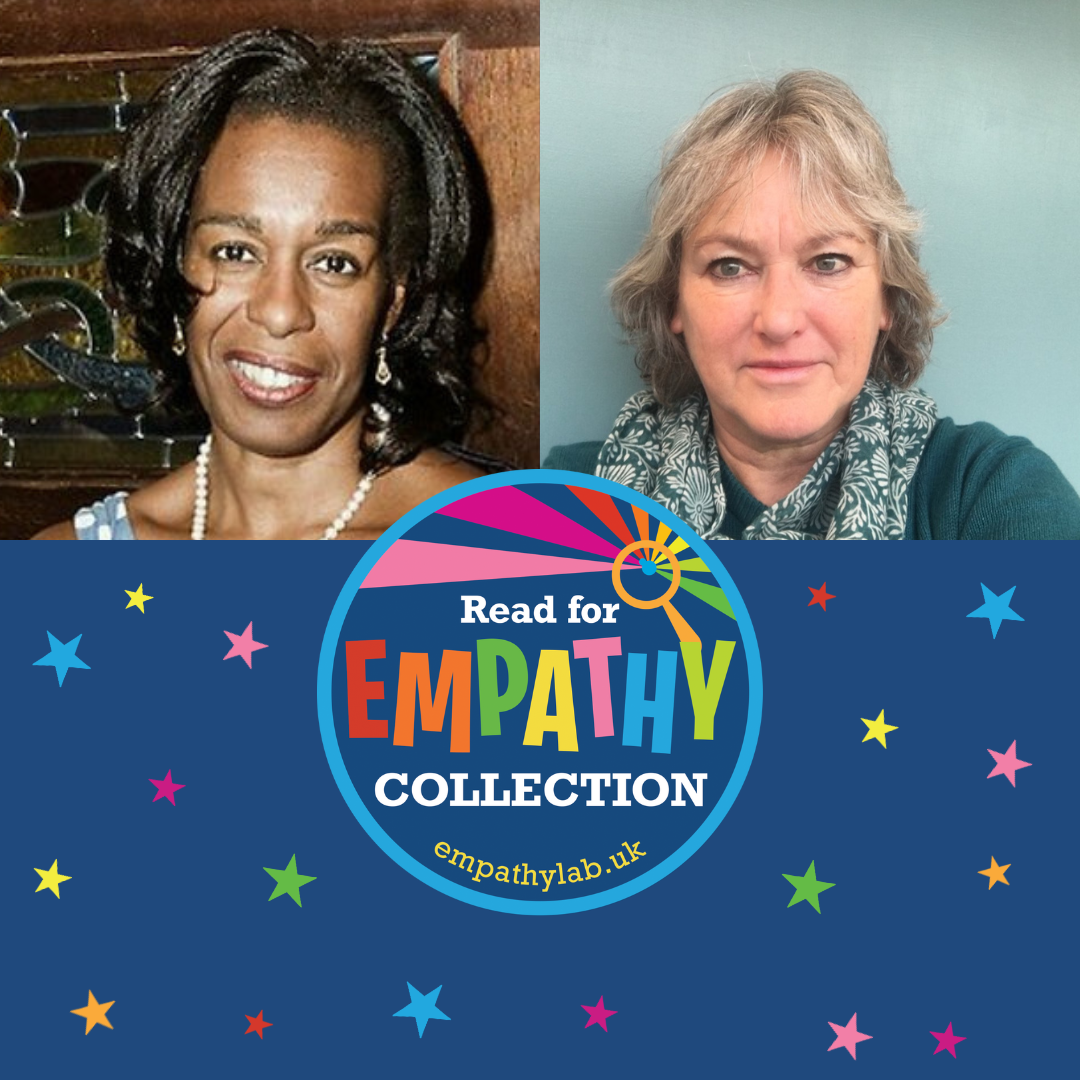WHY EMPATHY SKILLS ARE REQUIRED TO SUCCEED – JULIA SUZUKI
- By EmpathyLab
- •
- 31 Jan, 2017
- •

Our children — the future — have new challenges that we did not face. Schools are increasingly challenged with cultural integration. Now, not only must children (through their developmental years) learn about and accept themselves and learn to accept others of their kind, but they must also try to grasp understanding of the world at large, amidst a wave of political instability and intolerance. That is a huge task at hand, and vast empathy skills are required to succeed.
I was excited to hear about EmpathyLab at the Patron of Reading conference in February; I discovered more about the recent research which determines that reading is at the heart of developing empathy in children, and I jumped at the chance to be involved.
I am an author of a children’s series and a Patron of Reading, working within a secondary school, King Edward V1 in Lichfield (Midlands). Having struggled in my youth, as many children do, with the cruelty of other children, I felt driven to write novels that may help youngsters. The main character in my middle-grade series is an empath, a young dragon who is so sensitive to the feelings that he changes colour. Despite his initial alarm at being different, he soon discovers that this is a gift, and begins to use it to help others, promoting the idea that it is cool to be kind. My goal within this adventure setting was to help children understand that whilst they are different (within their interests and talents and origins) from one another, they are all of equal importance. And furthermore, to understand that, we all need each others unique skills to create a happy society.
I am keen to take the messages and ideas of EmpathyLab into the feeder primary schools of my own Patron school before September 2015. I would also like to take the EmpathyLab concepts into the other writing clubs I work with throughout the UK. It will be really interesting to gather feedback from teachers and the children using the EmpathyLab concepts, and to work with the organisation to develop new ones. I really like the thought of children developing a stronger insight into how it feels to walk in each others shoes.
My favourite empathy novel is ‘The Boy in Striped Pyjamas’ by John Boyne. It is a poignant story about a a nine-year-old German boy, Bruno, who meets the young Jew Schmuel (in a concentration camp) at the time of the holocaust. Schuel, like the other people there in the concentration camp, wears a uniform of striped pyjamas. The two boys chat through the wire fence that separates them. Bruno’s friendship with Shmuel takes him from innocence to revelation as he develops an understanding of how Schmuel must feel, and feels the need to help, even at risk to himself.
EmpathyLab is sure to help our children to be sensitive to the feelings of others, and I believe that will make a world of difference.
Find our more about Julia and her work – The Land of Dragor series – and follow her on Twitter.
Find out about the Top Ten Messages from our Think In and our next steps.
Read the Think In crowd-sourced recommendations for books that helped you understand someone else better.
Join our network on LinkedIn – we’d love you to be part of the conversation.

The collection consists of 65 books for 3-16 year olds, each chosen for its unique contribution in building young people’s empathy.
The primary collection for 3-11 year has 40 books; the secondary collection features 25 books for 12-16 year olds.

I am very fortunate to have been on the Read for Empathy booklist judging panel over the past few years.
I’m also a practising classroom teacher so I would like to consider how the books on the list can influence what happens in a school.
Firstly, along with many other schools, reading aloud is an important part of our school day, every day, almost without fail. All the teachers at my school are aware of the EmpathyLab booklist, and often use it as a basis for choosing their next class read. Knowing that the books touch on important aspects of our children’s lives is key; we all understand how important representation is in stories. These are books that make a difference, that lead to passionate discussions in the classroom and can actually influence children’s behaviour .
The booklists become increasingly valuable. We have a couple of hundred empathy texts at our school – they are there on merit. Staff often refer to previous lists if there as a particular aspect of empathy that they want to include or share with the children.
Our Year 6 Reading Champions often seek out picture books from the list to take in to KS1 and Reception when they read stories, so we already have the next generation educating each other about the importance of empathy. I love the fact they often meet beforehand (they tend to work in twos) to discuss what questions they might want to ask the children once the story has been read. After each booklist is released, they also spend several of their Friday recommendation slots in assembly talking about a couple of the books. We have parents in on our Friday assembly so it’s a great way to share the texts with them and help raise their awareness of our work.
We often use the books as our teaching texts for English, partly because they encourage excellent writing but also because they provide a fantastic opportunity for our pupils to develop their empathy skills. The Wild Robot by Peter Brown, Miraculous Journey of Edward Tulane by Kate DiCamillo, Freedom by Catherine Johnson, Eyes that Kiss in the Corners by Joanna Ho and A Street Dog Named Pup by Gill Lewis are all books that have made in into our English curriculum as a result of being on one of the Read for Empathy booklists. Well, that’s not strictly true - Edward Tulane was there before that as it’s one of my favourite ever books, but you hopefully take my point.
Reflecting on our empathy journey over the past few years, I’ve also found that the more books children read that address empathy, where they can relate to the characters and their choices, the more books they want to read. It’s almost a virtuous circle. Many begin to realise that such books can empower them to think about situations.
For example, as soon as we finished A Street Dog Named Pup last year, several of them immediately wanted to read other books by Gill Lewis. Because empathy is a thread that runs through much of her work ( Gorilla Dawn , Moon Bear , The Closest Thing to Flying and so on). Thanks to EmpathyLab's lists, I was able to point them in the direction of several other books, by her and others.
I think we agree that teaching children about empathy and providing them with opportunities to develop it is one of the most important gifts we can give them as adults. The fact that empathy has gone from being something that schools sort of understood a few years ago to being something that has got an increasingly solid evidence base is crucial.
There’s always been anecdotal evidence that reading stories is important for children and that it can change how they think but now that’s backed up with research. The empathy revolution (and it is a revolution) is only going to pick up more momentum over the next few years as the need for it becomes ever more apparent. Working in schools and in the world of children’s books means that we’re in the front line. There’s nowhere else I’d rather be.
